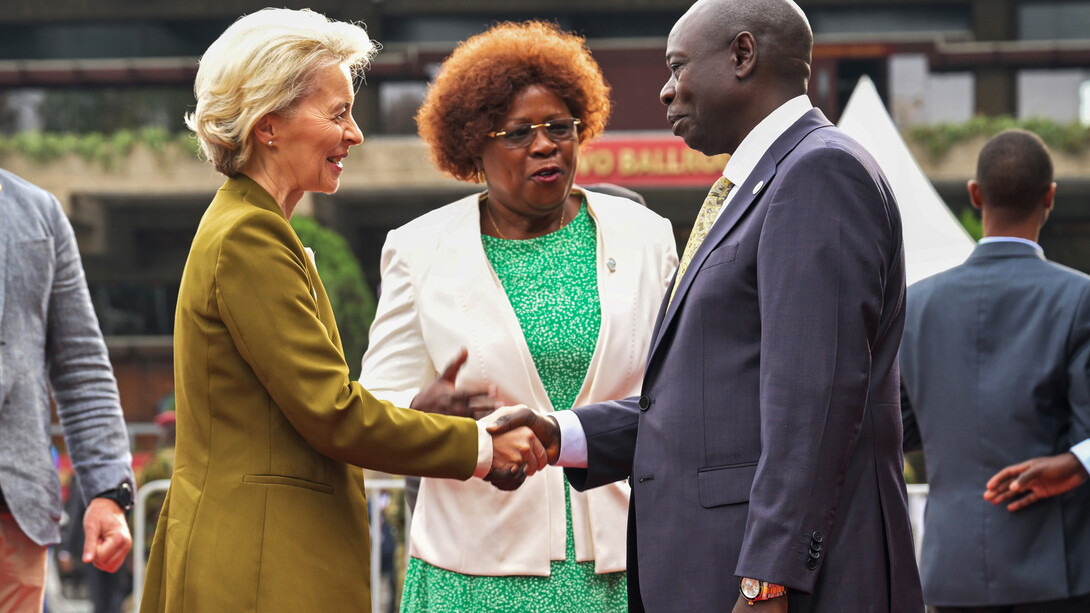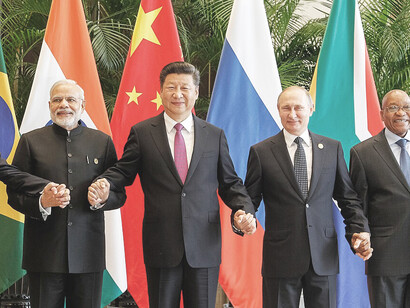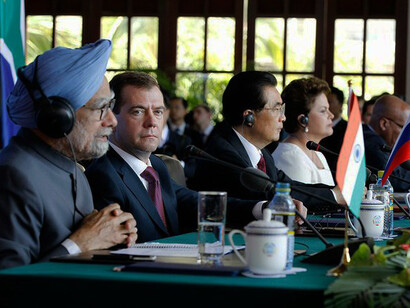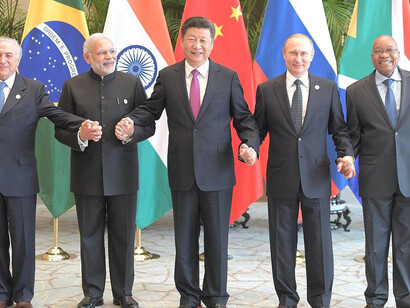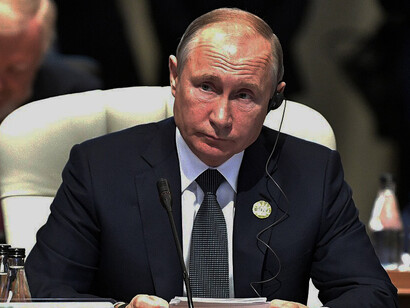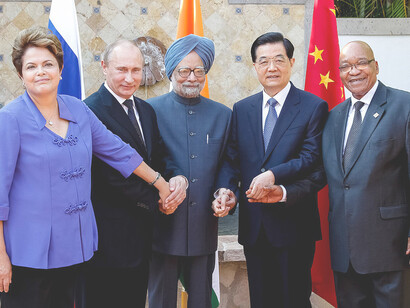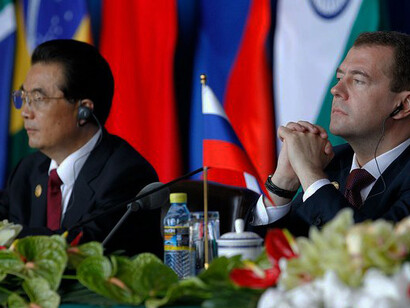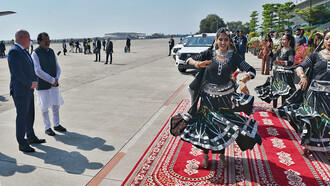On July 30th, 2023, in the capital city of Niger, Niamey, thousands of supporters of the recently established leadership, a military junta that gained control via a coup d’etat, went to the streets to pledge their allegiance and to showcase their disdain for the Western world. Among other actions, the protesters went to the French Embassy and lit the building’s door on fire, narrowly being broken up by the army and thus avoiding graver actions. This was part of a larger set of anti-Western protests and military dictatorships that have been established in the Sahel region in the past years.
The declining power of France on the African continent, especially among its former colonies, might not be a surprise to some. Since 2022, the French army withdrew its presence from Mali, Burkina Faso, Niger, and Chad, with even some of West Africa’s more democratic nations, such as Senegal and the Ivory Coast, declaring similar intentions. What was stunning about the aforementioned case in Niger is the fact that the regime’s supporters waved none other than Russian flags and chanted the name of Vladimir Putin.
The West out, Russia and China in
While Europe has been focusing on internally combating the growing influence of Moscow’s tailored narratives and on countering emerging far-right populist movements, Russia was manifesting its soft power all over the Global South. By tapping into the deep anti-Western sentiment of African leaders and of the general population alike, a disdain that is intrinsically tied to Western Europe’s colonial past, Russia quickly became an informational, security, and resource powerhouse, especially in Africa and especially in the West African/Sahel region. The Kremlin portrayed itself as an alternative to Western hegemony and its “neocolonialist” modus operandi, quickly filling in the blank spots left behind by France, Germany, the United Kingdom, or the European Union as a whole.
From a media perspective, Russia’s RT channels, among others, became some of the main sources of (dis)information in Africa, spreading deeply anti-Western narratives against democracy and human rights while defending “traditional values” and presenting Moscow as the anti-colonialist alternative. Russian propagandists also rely on two other aspects in persuading African countries that Moscow is their natural ally: they ingeniously promote media materials that include former anti-colonial leaders of various African countries, while simultaneously emphasizing the role the Soviet Union played in supporting most of the continent’s independence movements. Naturally, Russia then positions itself as the true successor to take up the Soviet mission.
Once establishing itself as the flag bearer of anti-colonialism, the Kremlin could insert propaganda narratives related to totally different foreign policy interests, some of which could affect Europe in unthinkable ways. An example of this is Africa’s perception of the war in Ukraine. In a survey 1 conducted in several African countries with varying political regimes, more than 70% of respondents agreed with the statements that the war in Ukraine is a consequence of NATO’s Eastern expansion and that Africa’s food and energy crises were caused by the Western sanction regime against Russia.
One does not have to clarify the gravity of the situation: having the youngest, most unstable, and most rapidly growing (demographically and economically) continent in the world be shaped by anti-democratic and anti-Western narratives represents a medium-to-long-term existential challenge to liberal democracies worldwide, and to Europe in particular.
Beyond geopolitical narratives, the West’s declining influence in Africa spells out an elevated access to security and financial opportunities for adversarial actors, such as Russia and China. In that sense, some examples that are worth mentioning are:
Russia’s military presence in the Sahel region (first through the Private Military Company Wagner, now through the direct control of the SVR intelligence service), offering private protection to military dictators and ensuring the survival of their disruptive regimes.
Russia is the largest arms exporter 2 in Sub-Saharan Africa, overtaking China in 2023.
China owns an increasing proportion of Africa’s mining sector, with significant reserves of critical materials for modern technology, such as cobalt and lithium.
Russia practiced unconventional warfare by supporting violent militaristic regimes that caused persistent instability in Central and West Africa, leading to a ripple effect in Europe through irregular migration.
These are only some of the consequences of declining Western power in Africa, outlining the urgency of a new approach. Africa will have to matter more to Europe if the latter wants to prevent political instability if it still desires to be a significant factor in the emerging technologies sector, and if it wants to remain a normative power in the Global South. Furthermore, considering the current strategic uncertainty of the Euro-Atlantic partnership as a result of the Trump presidency, Europe will desperately need new, reliable democratic allies, while Russia and China’s expansion in Africa can only spell a surge in autocracy throughout the continent.
What about Central and Eastern Europe (CEE)?
It is quite evident that when engaging with its African partners, former European colonial powers hit a brick wall oftentimes: the brutal past that marked the centuries-long colonial rule cannot be erased that easily. As such, many African leaders choose to gravitate towards Moscow and Beijing, absorbing their narratives about the oppressive, decadent Western world, while viewing alliances such as BRICS as the rise of “the rest” against “the West,” the revenge of the New World against the old.
Nevertheless, Europe remains a significant investor and trade partner of Africa, whether we refer to humanitarian aid, peacekeeping missions, or projects such as the Global Gateway Africa-Europe Investment Package 3, which proposes 150 billion euros for green transition and digital transformation. However, what it can make up through modernization projects, Europe lacks in soft power, in its ability to change perspectives about liberal democracy, the rule of law, and the perils that an alliance with Russia and China can bring to the African continent.
As long as the aforementioned points come through the mouths of the “former colonizers,” the West will be talking to deaf ears. In this context, as a geopolitical analyst, I am often surprised how very rarely one has raised the question: “What about Central and Eastern Europe?”
Eastern Europe-Africa: a once-cordial, now cold relation
It was only half a decade ago, at the peak of the Cold War, that Eastern Bloc countries and most African nations shared a positive relation, one that has gone colder in the past 35 years, but not sour. Unfortunately, but understandably so, many Eastern European nations do not encourage an active remembrance of those relations, since they are intrinsically tied to a period that CEE countries utterly loathe—communism and the Eastern Bloc Soviet Satellite.
However, given the current geopolitical context, with Russia and China getting traction throughout the Global South, it would be naïve to abandon a good basis of collaboration and a solid historical connection, regardless of the context in which it was created. Eastern Bloc countries engaged with Africa in various ways during the Cold War period, on an educational (student, doctor, and scientist exchanges; the opening of technical schools in Africa), commercial (technology and natural resources trade), and geopolitical level (material and voiced support for socialist/communist movements and guerillas).
Furthermore, although most of these actions were part of a coordinated effort with the Soviet Union to support worldwide communist movements, this was not always part of a submissive, puppet-state-like dynamic. For example, in the case of some communist regimes in CEE countries, such as Tito’s Yugoslavia or Ceausescu’s Romania, the idea of opposing colonialism and imperialism, regardless of whether one’s referring to the United States or the Soviet Union, arose and was supported among Global South countries.
Again, while the context is fully different in the present, CEE countries should not neglect the fact that, despite the reduced bilateral relations of the past 35 years, Africans maintain a generally positive opinion regarding Eastern Europe. They see them as different from the West; they were never colonial powers, and they provided various forms of aid in the incipient stages of African statehood. It is now time to use this positive image to the advantage of Europe as a whole by countering Russia’s capture of the African informational bubble.
Countering Russia’s narratives through the Eastern European perspective
A way in which this could be achieved is by framing Russia’s past and present policies toward its population and towards its neighbors as textbook colonialism.
On one hand, from a historical perspective, Imperial Russia itself has been engaged in a colonialist endeavor, even on its present territory. For example, its conquest of Siberia led to the suppression of national identities and the obstruction of any attempts at genuine ethnic and regional autonomy (since the idea of a true “Russian Federation” exists only on paper). To this day, Siberian linguistic and cultural identities are suppressed by Russian authorities, while the ethnic populations of regions such as Buryatia, Yakutia, or Dagestan are disproportionately being sent to the frontlines, to the meat grinder of the Ukraine war.
On the other hand, Russia, under its form as the Soviet Union, also treated its Eastern satellite states as some form of colonies, removing and persecuting political or intellectual opposition to the regime, oppressing religious beliefs, and ultimately intervening militarily when a certain leadership did not submit to Moscow’s yoke, as it was the case in Hungary in 1956 or in Czechoslovakia in 1968. Nowadays, also as part of a colonial manifestation, Russia will not accept the decisional autonomy of Central and Eastern European states when it comes to their political and military alignment with the West and NATO, respectively. Ultimately, Vladimir Putin views the collapse of the Soviet Union as the greatest tragedy of the 20th century, and it is actively attempting to regain what he views as Russia’s historical territorial right, its “Manifest Destiny.”
It is these narratives that can truly resonate with African governments and civil society and can change minds regarding Russia and its presumed role as a champion of anti-colonialism. If these can be framed as common experiences, it can make African nations more reticent towards collaborations with Russia, while also changing their perspective on the war in Ukraine as well.
In the end, the aforementioned historical arguments have to converge and conclude with Russia’s invasion of Ukraine, which is also a form of post-colonial struggle for independence. Moreover, Moscow’s constant “denazification” narrative, in which the Ukrainian identity is fully associated with Nazism and thus deserves to be diminished, is reminiscent of an archaic colonialist mentality. This is why, if these points are made by Eastern European countries in Africa, through both dialogue with authorities and through active media propagation, then Russia should be seen through a single lens: that of a colonial empire that never reformed.
Conclusions: what can Europe improve in its approach to Africa?
Considering the relevance Africa is gaining continuously on the world stage, as well as the increasing Russian and Chinese soft power on the continent, Europe must develop long-term measures to counter authoritarian malign influence in the Global South.
Firstly, the West should realize that “throwing money at the problem” is not a long-term solution. Russia has been able in many parts of the world, especially in its “near abroad”, to attract large public and political support without investing in actual infrastructure, education, or healthcare, but mainly in various TV and online platforms spreading targeted messages. Meanwhile, Europe is offering considerable investments to many of its global partners but is still viewed with reticence or with pure disdain by many Global South leaders and populations.
As such, I believe that Europe should not shy away from investing in its own global media strategy, promoting pro-democracy viewpoints and actively countering Russian propaganda narratives through a worldwide journalistic network. Only that way can a European/Western viewpoint be competitive in the current media landscape of the Global South, currently flooded with viewpoints from Moscow or Beijing.
Secondly, as outlined throughout the article, this European strategic communication would be futile if only limited to a Western viewpoint, which will always be associated by the African partners with a condescending, unempathetic, colonialist worldview. That is why it is essential for the stories of the historical struggles of Eastern European/Siberian people with Russian forms of conquest and colonization to be actively spread throughout the African continent.
Of course, each African nation is different, and the continent should not be taken as a monolith. However, this new approach to African engagement could be effective in diminishing Moscow’s soft power, regardless of the political regime in each African state. If Russia can manipulate millions of Africans into blaming Ukraine for the continent’s grain crisis in the past three years or into believing that NATO is responsible for the Ukraine invasion, so should Europe be able to counter that and expose the Kremlin’s true colonial ambitions.
Thirdly, for both aforementioned points to be realized, Central and Eastern European countries, who have been on a stunning upward trajectory since joining the European Union and NATO, should be aware that they must become global actors. That is especially the case of Poland, which is poised to become a major military and political power of the European Union and should thus concentrate its efforts towards increasing Europe’s soft power worldwide on essential issues: the perception of NATO, the war in Ukraine, Russia as an aggressor, or European liberal democracy as a viable, preferable global model.
Europe faces many faces in its vicinity, and it is understandable to prioritize them. Nevertheless, in a few decades, an economic and demographic surge will happen in a wide variety of Global South countries. We do not want them to look for inspiration from Moscow or Beijing, but towards the European capitals, and I fully believe Central and Eastern Europe can make a significant contribution to this matter of immense importance for the future of democracy, at home and worldwide.
References
1 Madrid-Morales, D., Wasserman, H., & Ahmed, S. (2024, September 4). Chinese and Russian disinformation flourishes in some African countries – anti-US sentiment helps it take hold. The Conversation.
2 Le Monde. (2023, March 28). Russia overtakes China as leading arms seller in sub-Saharan Africa. Le Monde Afrique.
3 European Commission. (n.d.). EU-Africa Global Gateway investment package.
